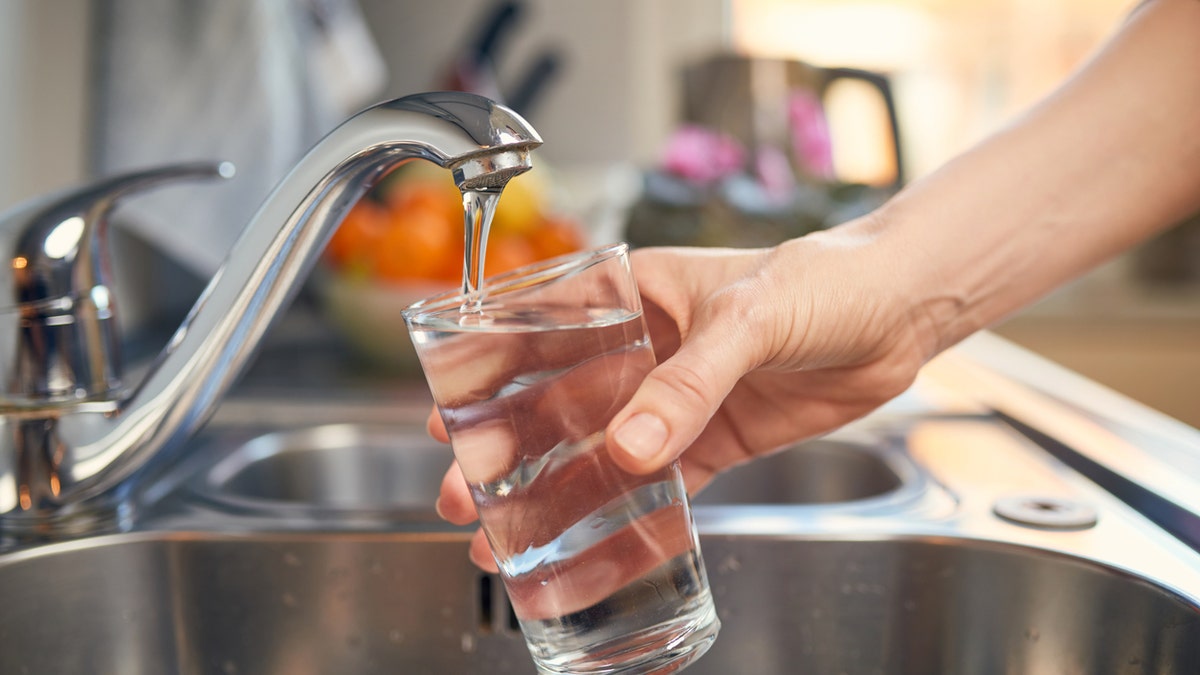Fox News Flash top headlines for April 16
Fox News Flash top headlines are here. Check out what's clicking on Foxnews.com.
Drinking water to maintain a healthy sodium level in the bloodstream may reduce the risk of heart failure, a chronic condition where the heart has difficulty pumping blood to match the body’s needs, according to a recent paper published in the European Heart Journal.
Over 6.2 million Americans suffer from heart failure, which is more than 2% of the United States population and is more common in those ages 65 and older, according to a recent press release on the study.
A team from the National Heart, Lung, and Blood Institute analyzed data from the Atherosclerosis Risk in Communities study, which has been following approximately 16,000 adults over thirty years to better understand atherosclerosis and heart disease.
ALCOHOL INTAKE AT ANY LEVEL MAY INCREASE RISK OF HEART DISEASE. STUDY SUGGESTS

Woman drinking water (iStock)
The Mayo Clinic notes healthy people maintain a sodium level between 135 and 145 mmol/L in the bloodstream, but as sodium increases, the body’s fluid levels decrease, so the researchers used sodium as a marker for fluid status to identify participants who had a higher risk for developing heart failure.
The study focused on the participants with hydration levels that were within a normal range who did not have diabetes, obesity or heart failure when the study started. Filtering data to approximately 11,814 adults in the final analysis, it found 11.56% developed heart failure.
"Heart failure risk was increased by 39% if middle age serum sodium exceeded 143 mmol/L [millimoles per liter], corresponding to 1% body weight water deficit," the study authors noted.
They also found a serum sodium of 142.5–143 mmol/L in the middle-age cohort was associated with a 62% increase in odds to develop left ventricular hypertrophy, where the main pumping chamber of the heart, the left ventricle, thickens, leading to a potentially reduced pumping action of the heart and increase risk of heart failure, according to the Mayo Clinic.
The press release noted a sodium level in the bloodstream of 143 mmol/L correlated to a 102% increased risk of LVH and a 54% increase in the risk of heart failure.
"Based on these data, the authors conclude serum sodium levels above 142 mEq/L in middle age are associated with increased risks for developing left ventricular hypertrophy and heart failure later in life," the press release added.
LOWER RISK OF CARDIOVASCULAR DISEASE ASSOCIATED WITH AVOCADO CONSUMPTION: STUDY
The study noted its main limitation was it could not prove a higher blood sodium level caused heart failure, only that it was associated with the chronic condition because the research was only observational and not a randomized controlled clinical trial.

Filling up a glass of water (iStock)
"While fluid guidelines vary based on the body’s needs, the researchers recommended a daily fluid intake of 6-8 cups (1.5-2.1 liters) for women and 8-12 cups (2-3 liters) for men," the press release said.
Although most healthy people who are dehydrated will be triggered to drink water, older people may not have the same thirst drive, according to Best Life.
"Older people don't sense thirst as much as they did when they were younger. And that could be a problem if they're on a medication that may cause fluid loss, such as a diuretic," said Dr. Julian Seifter, an associate professor of medicine at Harvard Medical School.

Woman drinking water (iStock)
But if you are unsure if you are dehydrated, a sodium level can be checked easily with a routine blood test known as a basic metabolic panel that bundles common electrolytes in one blood test, including potassium, sodium, chloride and glucose, according to Best Life.
"Similar to reducing salt intake, drinking enough water and staying hydrated are ways to support our hearts and may help reduce long-term risks for heart disease," said lead study author Dr. Natalia Dmitrieva, a researcher for the National Heart, Lung, and Blood Institute.
CLICK HERE TO GET THE FOX NEWS APP
The Centers for Disease Control and Prevention lists some tips here for healthy water habits.









































